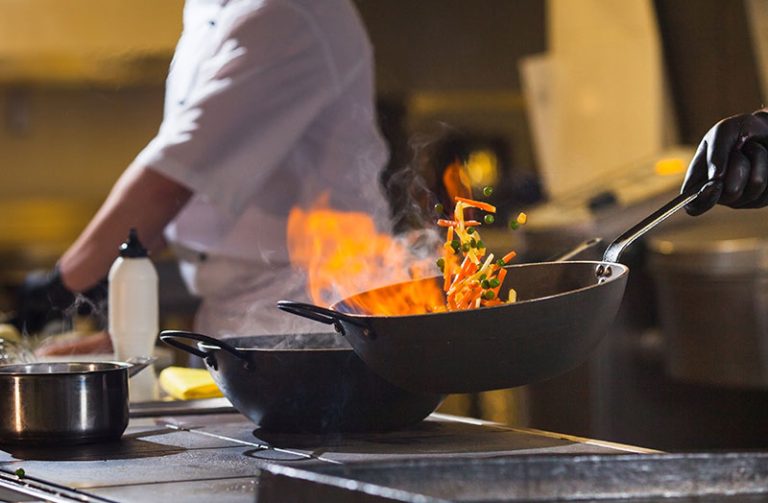Turning Compliance into Opportunity: The Business Case for Used Cooking Oil Recycling
The Dual Benefits of Compliance and Recycling
Compliance with used cooking oil regulations is no longer just about avoiding fines. It has become a pathway for businesses to align with sustainability goals and reap financial rewards. When done correctly, recycling used cooking oil offers a win-win scenario: it protects the environment while contributing to your bottom line.
The financial benefits start with rebates. Certified recycling vendors often provide payments based on the volume and quality of the oil collected. High-quality, uncontaminated oil is more valuable for conversion into biodiesel and other renewable energy products, making proper handling and storage essential. This turns a once-burdensome waste product into a revenue stream, reducing disposal costs and generating income.
Recycling also supports compliance by ensuring that used oil is disposed of responsibly and according to regulatory standards. Partnering with certified vendors simplifies this process and reduces the risk of fines or operational disruptions, giving business owners peace of mind.
Building a Sustainable Brand
Beyond financial benefits, recycling used cooking oil has a profound impact on brand perception. Consumers are increasingly drawn to businesses that demonstrate a commitment to sustainability. By adopting eco-friendly practices, restaurants can differentiate themselves in a competitive market and build loyalty among environmentally conscious diners.
Transparency is key to maximizing the branding potential of compliance. Sharing your recycling efforts through social media, on your menu, or even in your physical space can resonate with customers. Highlighting partnerships with certified vendors and showcasing your contribution to renewable energy efforts adds authenticity to your claims.
For example, a restaurant that prominently displays its recycling statistics—such as the gallons of oil repurposed into biodiesel—sends a powerful message about its values. This not only attracts eco-conscious customers but also fosters a sense of pride among staff, further embedding sustainability into your company culture.
Steps to Leverage Recycling as an Opportunity
To fully capitalize on the benefits of used cooking oil recycling, start with a review of your current practices. Assess how oil is handled, stored, and transported to identify areas for improvement. Proper storage in sealed, leak-proof containers ensures oil remains uncontaminated, maximizing its value for recycling.
Partnering with a certified vendor is essential. These experts provide reliable collection services and ensure that your oil is recycled according to regulatory standards. Many vendors also offer detailed compliance reports, which can simplify audits and provide data for promoting your sustainability efforts.
Training staff on proper oil handling is another critical step. Employees should understand how their actions contribute to the recycling process, from minimizing contamination to safely transferring oil to storage containers. A well-informed team is essential for maintaining consistent, high-quality recycling practices.
Turning Compliance into Competitive Advantage
The most successful businesses don’t just comply with regulations—they use compliance as a competitive advantage. Recycling used cooking oil positions your restaurant as a leader in sustainability, giving you an edge in attracting eco-conscious customers and building lasting loyalty.
Highlighting these efforts in your marketing strategy amplifies their impact. Sustainability certifications, partnerships with recycling vendors, and customer-facing messaging all reinforce your commitment to responsible practices. This not only differentiates your brand but also enhances your reputation in the community.
Additionally, compliance can open doors to media attention and industry recognition. Restaurants that prioritize sustainability often receive positive press, further elevating their profile and attracting new customers. With a growing emphasis on environmental responsibility in the marketplace, these efforts can be a cornerstone of long-term business growth.
Sustainability as a Pathway to Growth
Recycling used cooking oil isn’t just about meeting regulations—it’s about embracing a smarter, more sustainable way of doing business. From financial incentives to enhanced brand reputation, the benefits of proper oil management extend far beyond compliance.
By taking proactive steps to improve your recycling practices, partnering with certified vendors, and promoting your efforts to customers, you can turn compliance into an opportunity for growth. In today’s market, where sustainability matters more than ever, this approach not only sets you apart but also strengthens your connection with customers who share your values.
Longview Environmental encourages restaurant owners to see the big picture: compliance isn’t just a box to check—it’s a chance to lead the way in sustainability and build a stronger, more resilient business.








